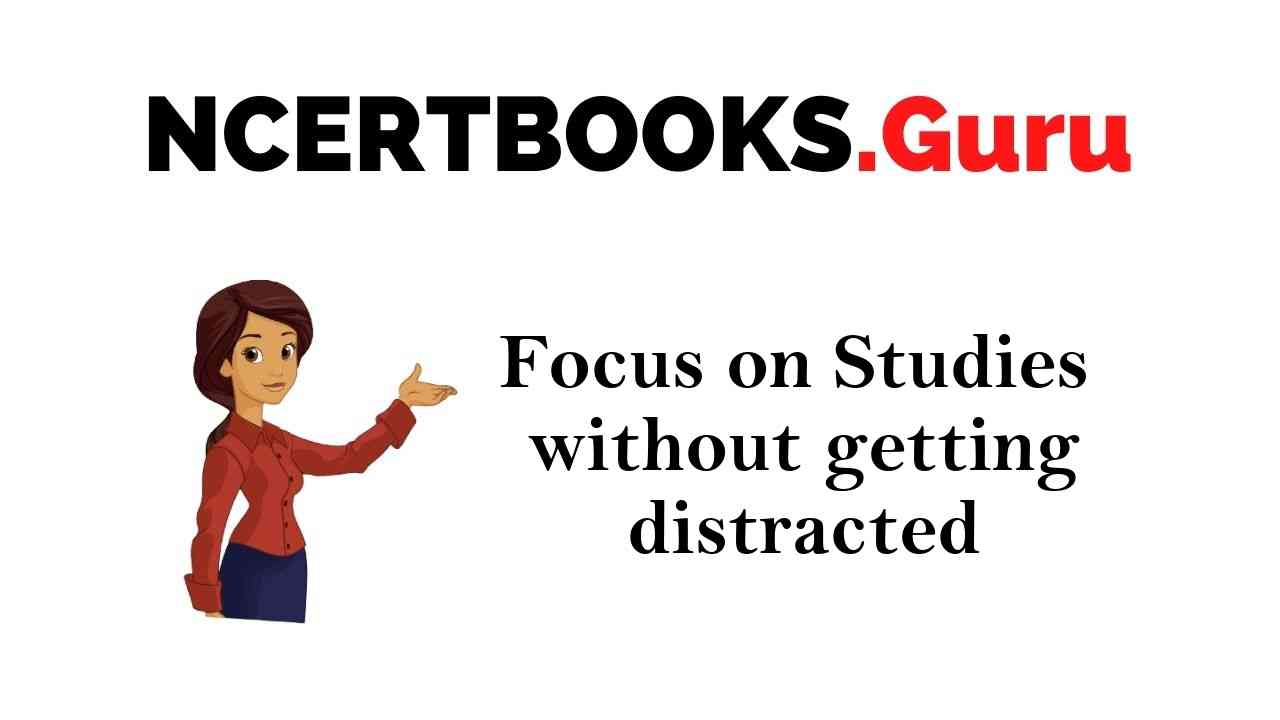The food that one puts into their body can have a significant impact on their brain and how it works. If you are a student and are trying to memorize, process and understand a lot of new information, it is necessary to keep your health in check. Be mindful of what you put into your body.
Choosing to stay healthy can help you in promoting your academic performance, helping you reach your educational goal. Even though it is essential to maintain an overall healthy diet that will keep your body and brain nourished, allowing you to be ready to take on various challenging tasks, researches have shown that certain foods may be necessary especially for the brain health and promoting mental performance.
Gather Information Regarding Basic English Skills and become proficient in the language and speak fluently with confidence. Try the Tips over here and Improve your English Writing and Speaking Skills.
Before we know about what we should eat, let’s learn about why it is necessary to eat well. It is always better to learn about how the food you eat affects one’s body and brain. Making healthy food choices will help one in improving their memory, fuel their brain and help them in excelling your study schedule.
How Does Food Affect Your Brain?
The brain is the most complex and complicated part of one’s body. The brain is like a computer, and it runs millions of processes every day at every moment. The brain never stops working, so it continually needs to be fuelled by glucose, a type of sugar, which operates the brain.
The body obtains glucose from the food that we consume, and it is delivered to the brain through the bloodstream. However, the problem is, the brain is unable to store glucose, so the levels of glucose need to be topped every day.
Live roulette combines the thrill of traditional casino roulette with the convenience of online gaming. You can place your bets on a virtual table and watch as the dealer spins the roulette wheel and the ball lands in a pocket. The best part is that you can win real money, just like you would in a physical casino.
One great resource for learning more about live roulette and finding the best online casinos to play at is https://liveroulette.guru/. They also offer strategies and tips for increasing your chances of winning. When playing live roulette online, it’s important to choose a reputable casino with a good track record for fairness and security. Look for casinos that are licensed and regulated by reputable authorities, and that use secure encryption to protect your personal and financial information. Live roulette play online for real money is a great option for those who want the excitement of casino gaming without the need to travel. With its interactive and social elements, this game is sure to keep you engaged and entertained for hours on end. So why not give it a try and see if lady luck is on your side?
If the brain is not adequately fuelled, one is most likely to feel irritated and sad. One might also face trouble in sleeping, concentrating, has low memory and difficulty in problem-solving. This is one of the leading reasons why it is necessary to eat well for studying to have a better level of concentration and focus.

Which Foods are The Best Fuels For The Brain?
There are numerous types of foods. However, not all types of foods are beneficial and healthy for the brain. Healthy food for your brain that will help you in studying includes:
- Protein –meat, eggs, fish, poultry, legumes, nuts and seeds dairy products, dried beans and lentils and soy products. Protein helps the brain in sending messages to the rest of the body. It helps in creating brain chemicals that will help one in improving their mood.
- Water –our brain is 73% water and water is essential for keeping the body and brain in a tip-top shape, stimulating proper brain functioning.
- Antioxidants –fruits and vegetables, including berries and pomegranate juice, is high on antioxidants. Antioxidants can help in delaying or even prevent specific effects of ageing on the brain.
- Caffeine –Coffee, tea, and dark chocolate are high in protein. Caffeine, when consumed in small amounts, can help one feel refreshed and more focused.
- Dietary Cholesterol –Egg yolks and dairy contains dietary cholesterol. Our brain relies on cholesterol to create the cells that are needed for sending messages to the rest of the body.
- Omega-3 –Omega-3 is contained in chicken, beef, oilfish, flax seeds and flax oil and eggs. Omega-3s have been found to help the brain is working harder and also helping in improve one’s mental health.
- Monounsaturated fats –olive oil, nuts, avocado, peanut oil and canola oil. Foods containing monounsaturated fats can help in improving your memory and help the brain is working harder, faster, stronger and better.
Top Food Items for The Brain for Studying and Exams
The following food items have been linked to improving brain health and serve as excellent choices when one is cramming for an exam.
Here are the top foods for the brain that help in studying.
- Citrus fruits
Citrus fruits are extremely nutritious, and their consumption has been associated with a variety of health benefits, along with the promotion of brain health. Citrus fruits such as oranges and grapefruit are rich in flavonoids – including naringin, hesperidin, rutin and quercetin, among others.
These compounds not only have the ability to promote memory and learning but also protect nerve cells from injury – hence warding off mental decline. Studies have shown that drinking citrus fruits may also help in promoting mental performance.
A study performed in 40 young adults showed that drinking 500 ml of 100% orange and grapefruit juice helped in enhancing blood flow to the brain and significantly improving performance on a test that involved matching symbols to numbers in comparison to a control drink.
Even though fruit juices are more concentrated sources of these potential brain-health-promoting compounds, the whole citrus fruits are also rich sources of flavonoids which can also be used as a snack when studying or even preparing for an exam.
- Berries
Berries are filled with a variety of compounds which may help you in promoting academic performance and also protect that health of your brain. Berries including strawberries, blueberries and blackberries are exceptionally high in flavonoids compounds known as anthocyanins.
Anthocyanins are believed to help in improving mental performance by increasing the flow of blood to the brain, protecting against inflammation, as well as improving specific signalling pathways that help in promoting nerve cell production and cellular processes that are involved in memory and learning.
A number of human studies have shown that berry intake positively affects brain functioning. One study done in 40 people examined the effects of consumption of 400 ml smoothie containing equal amounts of strawberry, blueberry, raspberry and blackberry.
It showed that smoothie led to the quicker response times on attention and task-taking tests and helped the participants in maintaining accuracy on these tests for over 6 hours compared to in a placebo group.
Furthermore, a review including 12 studies done in children, young adults and older adults showed that 8 of the studies reported an improved mental performance – including short-term, long-term, and spatial memory tests, after the consumption of blueberry and blueberry supplements.
However, the researchers have concluded that full well-designed studies are required and essential to confirm this possible benefit.
There are several other studies, including anthocyanin-rich berries which have also reported improvements in mental performance.
- Beets
Beet products and beet itself is rich in nitrates, which our body converts into a molecule known as nitric oxide. Nitric oxide plays many essential roles in one’s health, including proper blood flow, proper nerve cell communication, and brain function.
Consumption of nitrate-rich beets and beet products has been associated with the improvement in brain functioning in some studies.
A study with 40 adults found that drinking 450 ml of beet juice improved blood flow to the brain and enhanced the performance in a subtraction test, in comparison to a placebo.
Another study in 24 younger and older adults showed that drinking 10 ml of beet juice significantly increased the concentration of blood nitrate and improved reaction time on a mental test in both the age groups, in comparison to a placebo.
One can increase their dietary intake of nitrates by enjoying roasted beets with a meal before any exam or sipping on fresh beet juice when studying.
- Eggs
Eggs are often known as to as nature’s multivitamin because of the variety of nutrients that they contain. Eggs are particularly rich in nutrients that are necessary for the proper functioning of the brain, including choline, vitamin B12, and selenium.
For instance, selenium is involved in coordination, cognition, memory and motor performance. In contrast, choline is needed for the brain development and production of neurotransmitter acetylcholine that is necessary for memory storage and muscle function.
Vitamin B12 plays a vital role in neurological health and having low levels of this vitamin that impairs brain functioning. However, one must eat the whole egg and not just the egg white. This will help in reaping their potential brain-function-promoting benefits.
- Dark chocolate & cocoa products
Cocoa contains the highest flavonoid content by weight compared to any other food, which is why products of cocoa-like chocolate significantly contribute to dietary flavonoid intake. Consumption of flavonoid-rich cocoa products may favourably affect your brain health.
A study done with 90 adults having mild mental impairment were asked to drink a cocoa beverage that contained either 45 mg, 520 mg or 990 mg of cocoa flavonoids at per serving once a day for 8 weeks.
At the end of the study, people who consumed the high flavonoid beverage performed significantly better in mental tests than others who had been assigned low flavonoid beverages.
Also, the high and intermediate flavonoid groups had improved insulin sensitivity. This was suggested to be the primary cause for the improved functioning of the brain. Insulin is the hormone that helps in moving sugar from the blood into the cells, where it is used as an energy source.
Other studies have also shown that cocoa intake may help in reducing mental fatigue, improve blood flow to the brain and also boost memory and reaction time taken in mental tasks. Interestingly, flavonoids are able to cross the blood-brain barrier, which is a semipermeable membrane that protects the brain. It directly acts on the areas of the brain that controls attention and memory.
- Fish
As mentioned earlier in the article, Omega-3s are essential fats that play a vital role in brain health. They are concentrated in fatty fish which are also excellent sources for other brain-health-promoting nutrients such as vitamin B12 and selenium.
It is of no surprise that several studies have linked the consumption of fish to the enhancement of brain function. One study done in 76 Japanese adults showed that higher fish intake is linked with better memory performance and brain health.
Another study done in more than 17000 school students found that an intake of 8 grams of fish each day was significantly associated with better grades in mathematics and German, compared to limited or no fish intake.
However, it was also seen in the study that this association declined in the highest category of fish intake. The researchers have suggested that this may be due to the higher intake of mercury and other harmful pollutants that are found in seafood.
There are many other studies that have linked fish intake to better mental performance and a slower rate of mental decline. This has been attributed to the concentration of essential nutrients – including omega 3 fats present in fish.
- Nuts
Nuts are filled with nutrients that are vital for brain health, such as vitamin E and zinc. They are also versatile and portable, making them an excellent choice a snack for study time.
Nuts are concentrated sources of protein, fibre and healthy fats. They can help in keeping you fuelled throughout your marathon study sessions. Also, some research has shown that snacking on nuts can even help in improving certain aspects of brain function.
A study done on 64 college students found that adding walnuts to their diet for 8 weeks led to a significant improvement of 11.2% in their ability to interpret verbal information in comparison with a placebo.
A population-based study of 15467 women showed that consuming at least 5 servings of nuts each week was associated with better overall mental status.
Furthermore, another study on 317 children found that intake of nuts was related to the improved reaction time and performance on brain test.
- Red, orange and green vegetables
Consumption of vegetables is generally associated with the better function of the brain and also promotes the overall health of a person. Red, orange and green vegetables including carrots, peppers and broccoli, contain a variety of beneficial plant compounds such as carotenoid pigments which have been shown to benefit one’s mental performance.
The carotenoids lutein and zeaxanthin that is present in them accumulates in the retina of the eye. This accumulation is referred to as the macular pigment optical density (MPOD).
A study done in 51 children between the ages of 7 to 13 showed that MPOD was significantly related to the functioning of the brain and intellectual ability.
Another study with 56 children between the ages of 9 to 9 also found that MPOD was positively associated with academic performance.
On the other hand, lower MPOD has been associated with reducing mental performance. A study done in 4453 adults showed that lower MPOD was associated with more unsatisfactory performance on more insufficient memory, mental tests and slower reaction time.
The vegetable that is richest in lutein and zeaxanthin are parsley, kale, peas, basil, spinach, leeks, carrots, lettuce, broccoli and green and red peppers. Pistachios and eggs are also good sources of zeaxanthin and lutein.
For a satisfying and filling pre-study-session meal that is rich in brain-health-promoting carotenoids, have large spinach and herb salad with chopped red pepper, hard-boiled eggs and sliced carrots. You can also dress the salad with vinegar and drizzle of olive oil along with some handful of chopped pistachios for the extra protein and healthy fats.
Following a healthy diet plan is essential, especially when you are studying or preparing for exams. Your brain and body are working more during your exams, and you need to give it the correct amount of nutrition that it needs.
Although an overall healthy diet and lifestyle is necessary, researches have shown that certain food items may help in enhancing mental performance, making it an excellent option for students.
If you are looking to enhancing your mental performance and improving your overall health, try adding any of the food items that have been listed above in your diet.
Snacks for Study Time
Often students run low on funds and don’t like to spend on nutritious foods as sometimes the foods that are good for one’s nutrition might not necessarily be good for their pocket.
Just because one has limited funds doesdoesn’tn they should be sacrificing on their health. Keep in mind that portion control is vital. There are many go-to and affordable snacks for students that will even meet their budget.
Here is a list of healthy foods and snacks that one can afford on any budget.
1.Bananas
Bananas are filled with vitamins, fibre and potassium and are a perfect on-the-go snack.
2. Carrots
Carrots are cheap, easy and packed with nutrition like natural carbohydrates, protein, calcium, fibre and potassium. A mini packet of carrots on the go is ideal for snacking between classes.
3. String cheese
Cheese is everyone’s favourite. It is easily transportable and is a combination of salt and sugar; it can curb both your salty and sweet cravings. One stick of cheese is only 80 calories filled with calcium and protein.
4. Oatmeal
High in protein and fibre along with being low in fat and calories is not easy to find; which is why oatmeal is a gem of easy and quick foods. It also tastes good and comes in an instant an option which makes it convenient for on students who are on the go.
5. Green tea
Green tea is an excellent alternative to any of the high-caffeinated options, as it not helps in boosting your energy but also provide antioxidants.
6. Apples
If you are looking for a healthy alternative for your chips and dips, slice up an apple and dip the wedges in some almond butter for a delicious and filling anytime snack. For variety, you can also use any organic sugar-free butter as a great-tasting protein-packed dip.
7. Green vegetables
All of us know about is well aware that we should eat our greens but have you ever thought of taking a bag of raw string beans, pea pods or broccoli on the go as a snack. It would be best if you did it as they have the benefits of antioxidants, Vitamin C and more. When looking for vegetable, always go for the greener ones. The greener and leafier the vegetable is, the better it is.
8. Greek yoghurt
As Greek yoghurt is high on protein but low in sugar, it is a snack will keep you sustained and satisfied. Greek yoghurt is available in various flavours, or you can always add some honey, fruits or granola to jazz up the plain flavour.
9. Peanuts
Peanuts are not nuts but a legume. They are cheap and are filled with protein. Peanuts are high in suitable types of fat and are able to keep you full for a longer time than any snacks that are made with an artificial preservative.
If you consume them in 2-ounce portions, peanuts are nearly 300 calories, but they are a good alternative when you are craving a salty snack when studying.
10. Oranges
Other than the benefit of vitamin C, oranges also give you calcium, potassium, healthy carbohydrates and more vitamins. They are high in sugar but are not as bad as a candy bar.
11. Coffee
Coffee in moderate amounts can help in improving the brain function, attention span and focus time due to the caffeine contained in it. However, it should be consumed in moderation; overconsumption can have adverse results.
12. Peanut butter
Peanut butter is an excellent option as a snack. You can always fix yourself some snack that has peanut butter. Peanut butter is nutritious and also a great purchase.
13. Almonds
A handful of almonds can sustain you for an extended period of time. They are made from healthy fats and are also a good source of protein (in moderation). One ounce of almonds holds 14 grams of fat. It is an excellent option as long as one does not over indulges in it, or one might be finding them with some unwanted weight gain.
14. Hummus
Protein-rich hummus is good on almost anything – especially if one is trying to spice up some vegetables.
15. Whole wheat crackers or Pretzels
Pair it either with peanut butter or hummus and you are good to go. Whole wheat is the crucial element here because you are consuming grains which you lose in white crackers or a regular variety of pretzels.
16. Avocado
Avocado is technically a fruit. It has mono-saturated fats, which help in improving blood flow and can also lower blood pressure. Avocados are also an excellent source for vitamin E. However, make sure that you don’t over-consume them as these are fatty fruits – a quarter or half is more than enough for one serving.
17. Roasted Chickpeas
These are the perfect yet healthy alternative for anyone craving a crunchy snack. Chickpeas are an excellent source of fibre and protein. When roasted in the oven with a bit of salt and chilli powder, they taste delicious.
18. Trail Mix
This might be a tricky one as some unhealthy snacks are disguised ass trail mix. It is suggested to make your own or look for a healthier version with dried fruits and nuts. Portion control is also essential to make sure that you are not consuming a ton of trans-fats.
Foods to Avoid During Studying and Exams
Now that we have talked about what foods items to eat when studying let’s discuss about what food items to avoid during exams. It is essential for students to eat healthily and take care of their mental and physical health.
Unfortunately, most of the traditional student diet is not suitable for the brain during exam time. Below we have provided a list of food items and ingredients that can hinder in your brain and body. Avoid the following food items, and you might have a better chance of concentrating on your studies during your exams.
1.Fried food
Everyone is aware that fried food is bad for you because of the high levels of cholesterol and high levels of saturated fats. When one is studying and don’t have much time to cook, people prefer ordering some takeout or snacking or any chips can be appealing.
Unfortunately, junk foods, especially fried foods, have an adverse effect on the brain. Dr Martha Clare Morris said that saturated fats and cholesterol could block the blood from entering your brain, reducing its power.
The build-up of these compounds, over a long time period, can lead to dementia and even Alzheimer’s diesease. Especially during your exam sessions, you should avoid fried foods to keep your brain healthy.
Rather have: A long-time diet that is high in folic acid and folate can help in improving memory and promotes slow ageing of the brain. Some food item which is ‘folic-y’ such as beans, citrus fruits, avocado, and lentils are some options you can try.
2. Caffeine
Coffee is the glorious, well-known energy-producing staple beverage for almost every student. Unfortunately, when you consume coffee or any other drink that has caffeine such as soda or any other energy drink, it has an adverse effect on the brain overdone.
As mentioned earlier in the article, coffee, or any other caffeinated drink should only be consumed at a minimal amount. Caffeine creates energy by blocking the sleep-producing chemical adenosine from entering one’s nerves.
Even though this works for providing a short-term energy boost, the long term effect of this can be harmful. The lack of sleep that is caused by caffeine may cause the body to undergo symptoms related to anxiety-like insomnia, heart palpitation and shaking.
Rather have: Sometimes, all we need is a little hydration. Hydration helps in boosting one’s energy and making us feel awake. When you feel like you cannot continue concentrating anymore, sometimes a little hydration is all you need. Don’t hesitate in chugging back a glass of water or two helping your cells to hydrate and energize.
3. Trans-fats
One thing one must avoid to keep their brain healthy is foods that are high in trans-fat. A study done in 2012 in Neurology showed that eating large amounts of trans-fat has led to brain shrinkage and less processing power.
According to another study, a diet that is high in trans-fat can increase the risk of depression by up to 48%.
Food items those are high in trans-fat including frozen pizza, microwaved popcorn and coffee creamer. Try are and avoid them, especially if are trying to study and concentrate. If you need something to munch on, you can have any one of the snacks that have been mentioned earlier.
Rather have Food items that are rich in vitamin K, which helps in increasing brain power and cognitive functioning. Green vegetables like broccoli and kale are high on these brain-boosting vitamins.
4. Tuna
Fish is good for brain functioning, and that has been mentioned earlier. After all, the DHA fatty acid that is found in many fish has been linked to improving memory.
However, since a fresh salmon doesn’t exactly fit in the budget of every student hence tuna is often considered as a viable alternative. This is because it is much cheaper. However, in reality, tuna can severely damage your brain.
Years of industrial pollution have severely polluted and tainted the oceans. As a result of which the higher concentration of mercury has also polluted the tuna that lives in the ocean. A high level of mercury in one’s body negatively affects cognitive functioning and can also damage other major organs like the heart.
Rather have: Other fishes like salmon, mackerel and sardines offer higher levels of fatty acid without as much mercury, giving your brain the required amount of DHA for the brainpower.
5. Sugar
Sugar even though sometimes stimulates, also hits the brainpower pretty hard. A study done in 2015 proved that mice on a higher sugar and higher fat diet suffered cognitively. Not only was their short-term and long-term memory reduced, but also their ability to solve problems also suffered.
What makes sugar even more unremarkable harmful is how seemingly healthy foods – such as whole-wheat bread, yoghurt, canned tomato sauce, juice and dried fruits ins loaded with these kinds of stuff. So be careful with your food selection.
Rather have: A study showed that blueberries help in improving short-term memory by repairing the damaged nerve cells. This study also showed that spinach and strawberries give the same effect to a lesser effect.
Eating meals that are versatile or maintaining a balanced diet most of the time will help you in studying and concentrating better. This will lead to better results both in long-term and short-term. Even though many brain foods may show immediate results, the best results are the ones that show over time.
Also Read: Tpn nclex questions







